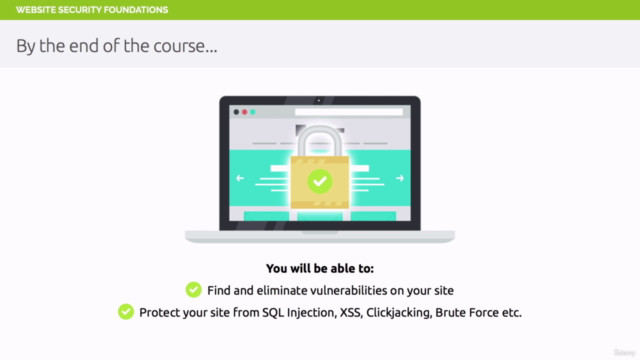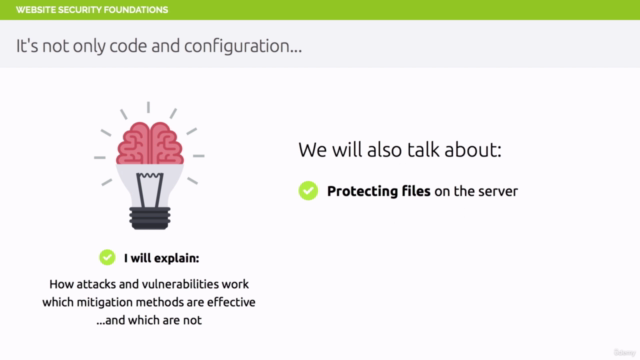Website Security Foundations

Why take this course?
🚀 Course Title: Website Security Foundations
😴 "Sleep well (and keep your users happy) by protecting your site from all typical attacks on web sites and web apps!" 🛡️
Course Headline: Sleep Well by Protecting Your Site 🌙
In the digital age, where our personal information is often stored online, security has become a critical component of the IT industry. With daily reports of data leaks, software vulnerabilities, and phishing campaigns, it's more important than ever to understand how to safeguard your website. 🚫💻
Introduction: The Digital World's New Normal
- Security is a massive and rapidly growing field within IT.
- With the rise of cyber threats, protecting your site is not just an option; it's a necessity.
The Importance of Web Security for Developers 🧑💻
- Security is everyone's responsibility.
- As you move on to more complex projects, the risks and importance of security grow significantly.
Course Overview: A Comprehensive Approach to Web Security 🔍
This course is designed for web developers with at least a basic knowledge of HTML, CSS, JavaScript, and PHP. We'll cover everything from the most fundamental concepts to more advanced techniques.
- Back-end code examples will be provided in PHP, with explanations that can be easily translated to other languages.
- The course content ranges from common attack mitigation strategies to server configurations, HTTP headers, secure coding practices, and password management.
What You'll Learn: A Security-First Mindset 🛡️
In this course, you will learn about:
-
Analysis and Mitigation Methods: Understand and defend against common attacks like SQL Injection, XSS (Cross-Site Scripting), CSRF (Cross-Site Request Forgery), Clickjacking, Brute Force, Path Traversal, LFI (Local File Inclusion), RFI (Remote File Inclusion), and more.
-
Protecting Files and Folders: Learn how to secure your server's files and folders to prevent unauthorized access.
-
Server Configuration: Discover how to configure your server and use HTTP headers effectively for enhanced security.
-
Secure Coding Practices: Write both front-end and back-end code that prioritizes user safety and data integrity.
-
Handling User Passwords and Sessions: Manage user passwords and sessions securely to protect sensitive information.
-
Encryption and Hashing: Understand the importance of encryption and hashing in safeguarding data.
-
Data Validation and Sanitization: Learn how to properly validate and sanitize incoming data to prevent security breaches.
-
WordPress Security: If you're using WordPress, we'll cover specific strategies to keep your site secure.
Conclusion: Your Path to Becoming a Security-Savvy Developer 🎓
This course will delve into the fundamentals of web security. It's designed to not only teach you about security but also to inspire further learning in this critical area. As I prepared this course, I was reminded of how much there is to explore in IT security, and I hope it motivates you to dive deeper as well.
Join me, Mateusz Skrzypczak, on this journey to master Website Security Foundations. Let's work together to create a safer web for everyone. Enroll now and take the first step towards becoming a security-aware web developer! 🛡️💻
Course Gallery




Loading charts...